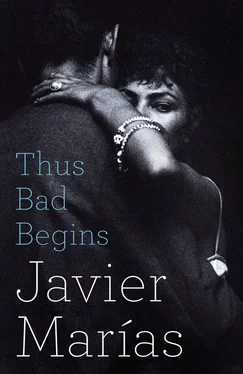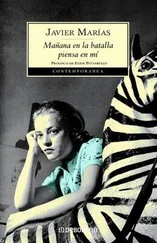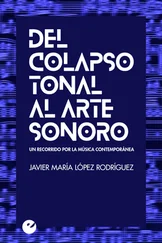Muriel sat up a little and looked at me more directly, although he was still not on my level, propping himself up on his elbows.
‘You’re right, Juan. Sometimes I take it for granted that all the friends who come here know the basic facts of my life, those that are verifiable and public knowledge, I mean, that you’ve all been witness to them or that you discuss me among yourselves. Not, of course, that there’s any reason why you should talk about me, even though I am the common link. I’m sure the others know about the death of our child, some of them were there at the time, that is, they attended the funeral and tried to console us in the days that followed. I forget that you’re a recent addition and much younger too.’
‘What happened?’
Muriel tucked his thumb under his armpit as he did sometimes, as if it were a tiny riding crop or a ridiculous little crutch, as if in search of a symbolic support on which to rest his whole body. Perhaps he did this whenever he was in low spirits, a state of mind that afflicts stomach and limbs and torso and head.
‘Well, I don’t much like to talk about it.’ And he said this somewhat haltingly, as if he were about to lose his voice or had a sudden need to clear his throat, a need that had not been there a second before. ‘We don’t really know. Jorge wasn’t sure, and there was no question of performing an autopsy on that poor little body. What would have been the point? He had died and, given the magnitude of that fact, it didn’t really matter why. And it wasn’t like it is now, when people are always looking for someone to blame, to see if they can squeeze some money out of their misfortunes. He fell ill one afternoon with a high fever. We didn’t think it was anything serious, a sore throat perhaps, children often run a temperature, but we called the Doctor anyway and he came rushing over, as he always did, always so ready to help. As I said, he did everything he could, none of us left Javier’s side for a moment and we saw how, that same night, he suddenly got worse. No, not suddenly. It was gradual, but somehow horribly fast. The truth is that at no point did it occur to us to fear for his life, and then he died and there was nothing we could do about it. As you can imagine, it was utterly incomprehensible. Beyond our understanding, I mean. I don’t think Beatriz has ever really taken it in. I’m not sure I have either.’
‘But did no one have even the vaguest idea of what caused his death?’
‘Jorge mentioned the possibility that it was meningococcal meningitis, which destroys the adrenal glands. It’s very rare apparently and, at the time, there was no treatment for it. It was impossible to diagnose quickly enough and impossible to treat. He assured us that no one could have saved him. Nothing and no one. I don’t know. We didn’t really try to find out and, in all these years, we never have. Why go delving any deeper, it would only have upset us even more. It happened, and now it can’t be undone.’ He had referred to the Doctor as ‘Jorge’ and called me ‘Juan’, as he had on the night of the suicide attempt; any truly serious matter restores our real names to us, it cannot tolerate affectionate or ironic nicknames. He again pointed at the photograph. ‘Beatriz insists on having him there on show, as if she were afraid we might forget. Or so that his brother and sisters are aware of his existence, even though they never knew him. Or perhaps she likes to see him whenever she passes by. It’s the most recent one we have of him, at Susana’s christening, Susana being almost two years his junior. As you can see, he was absolutely fine. He was until that final afternoon, and there was no warning of any kind.’ He stayed like that for a few seconds, leaning on one elbow, thinking or remembering, his finger still pointing. ‘Fortunately, I was here in Madrid. If I’d been away, I would never have believed it. But I was, and I saw what happened.’ Yes, he had been there, it wasn’t something someone had told him about, it wasn’t just a rumour, that’s what I understood him to mean. I repeated to myself the words he had said a little earlier. ‘Perhaps that is when bad begins, but, on the other hand, worse remains behind.’
‘Beatriz was there too,’ I said after a few seconds had passed, and once he was no longer pointing at the photo and had lowered his arm and was lying down again; before he did, though, he took the compass out of the back pocket of his trousers and began slowly rubbing it against his cheek (the little box, I mean), as if smoothing a non-existent but always incipient beard, which, one day, he would allow to grow. ‘And for women, for mothers, it tends to be an even greater tragedy. It’s much harder for them to recover, if they ever do. The child developed inside their womb and so they’ve known it for months before it’s even born, isn’t that right?’ I uttered these banalities because I didn’t really know what to say.
‘Yes, unless the mothers are completely stoical,’ he said. ‘Because such mothers do exist, you know, no legend is without its exceptions. But, yes, Javier’s death made her more fragile in a way, left her still more unbalanced. Although not more fragile or more fearful as regards the other children, not at all, rather the reverse: the worst that could happen had already happened and wouldn’t happen again. It almost had the effect of an inoculation, she was much more relaxed about the other children than she’d ever been about Javier. Perhaps because he was the first, perhaps because he was a boy and because we men are said to run more risks, and so she feared for him far more than for any other child. I sometimes wonder if it wasn’t those bad presentiments of hers that brought it all about. Panic attracts misfortune and catastrophe. We do sometimes bring about what we most fear because the only way of freeing ourselves from that fear is for the bad thing actually to have happened, for it to be in the past and not in the future or in the realm of possibilities.’ — ‘For it to remain behind,’ I said to myself, those words from Shakespeare had made me think. — ‘However terrible and appalling the past may be, it always seems more innocuous than the future, or at least we’re better able to deal with it. I don’t know, maybe it was that or the realization of how defenceless we are, that there’s no point in taking precautions or protecting ourselves or anyone else, and that it’s therefore absurd to make yourself suffer beforehand; that, regardless of what preventative measures you take, the worst can still happen. It happens and it’s too late. It happens and that’s that. As you’ve seen, she takes her children pretty much for granted now, to the point of suddenly leaving them orphaned.’
‘Yes,’ I said, ‘but I don’t believe Beatriz’s fears could have made her son catch what you say is a very rare illness.’
He didn’t even bother responding, his comment had clearly been literary, not literal, a superstitious explanation for the inexplicable, which is what literature does really, most of the time, more or less. He changed tack:
‘Anyway, now I’ve told you. Let’s see: what other complaints do you have, my poor “no-one-has-ever-told-me-anything” ’ — and he imitated my voice — ‘what else would you like to know? Ah, yes, about my eye. Well, there’s no great mystery, it’s just that I prefer not to talk about or remember it — it makes me sad and makes me seem older too. It was when I was a child, at the beginning of the Civil War. My brother and I were playing on the roof terrace of my parents’ house. A bullet fired by a paco ricocheted off a wall and hit me. I lost an eye, which, at the time, was a real drama. Anyway, I’ve been like this since 1936, and that’s what makes me seem older than I am, I mean, fancy having a war wound at my young age. But, then, saying that I lost an eye during the War does make it sound as if I was old enough to fight, doesn’t it? Anything else?’
Читать дальше












